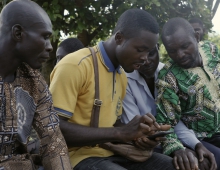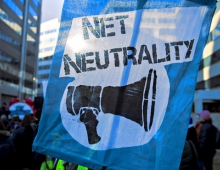
China to Identify Internet Bloggers
China intends to require its millions of Internet bloggers to emerge from the shadows and register under their real names in a move that is raising privacy concerns, the state press has reported.
Under the system, bloggers would be allowed to continue using their online pseudonyms, but must register with authorities under their real names, the Xinhua news agency said.
The real name requirement is an "unavoidable choice" if China wants to properly develop its blogging community, Xinhua quoted the head of the Internet Society of China Huang Chengqing as saying.
The society is the state-controlled organization in charge of developing the new system.
China has more than 17 million bloggers among its huge and fast-growing market of 123 million Internet users, according to previous reports.
Xinhua said some bloggers used their anonymity to disseminate "irresponsible and untrue" information, and called them a "bad influence".
However, the agency also acknowleged there could be privacy and free-speech concerns.
"A netizen named Xiaosha said the real name system may water down speech liberties and flexibility of bloggers, and even threaten the safety of their privacies," Xinhua said.
Human rights groups often criticize China for censoring content it views as objectionable, such as information on the nation's human rights record and on Western-style democracy.
Several of the world's top Internet search engines have also come under fire for bowing to Chinese censorship demands and for turning over personal user data to Chinese authorities, a move that has resulted in some Web users being jailed.
Huang acknowledged the concerns over free expression, but said there needed to be a balance between freedom and responsible Web use.
Huang gave no firm timetable for implementing the system, saying authorities would listen to feedback from online users before deciding its final shape.
The real name requirement is an "unavoidable choice" if China wants to properly develop its blogging community, Xinhua quoted the head of the Internet Society of China Huang Chengqing as saying.
The society is the state-controlled organization in charge of developing the new system.
China has more than 17 million bloggers among its huge and fast-growing market of 123 million Internet users, according to previous reports.
Xinhua said some bloggers used their anonymity to disseminate "irresponsible and untrue" information, and called them a "bad influence".
However, the agency also acknowleged there could be privacy and free-speech concerns.
"A netizen named Xiaosha said the real name system may water down speech liberties and flexibility of bloggers, and even threaten the safety of their privacies," Xinhua said.
Human rights groups often criticize China for censoring content it views as objectionable, such as information on the nation's human rights record and on Western-style democracy.
Several of the world's top Internet search engines have also come under fire for bowing to Chinese censorship demands and for turning over personal user data to Chinese authorities, a move that has resulted in some Web users being jailed.
Huang acknowledged the concerns over free expression, but said there needed to be a balance between freedom and responsible Web use.
Huang gave no firm timetable for implementing the system, saying authorities would listen to feedback from online users before deciding its final shape.





















